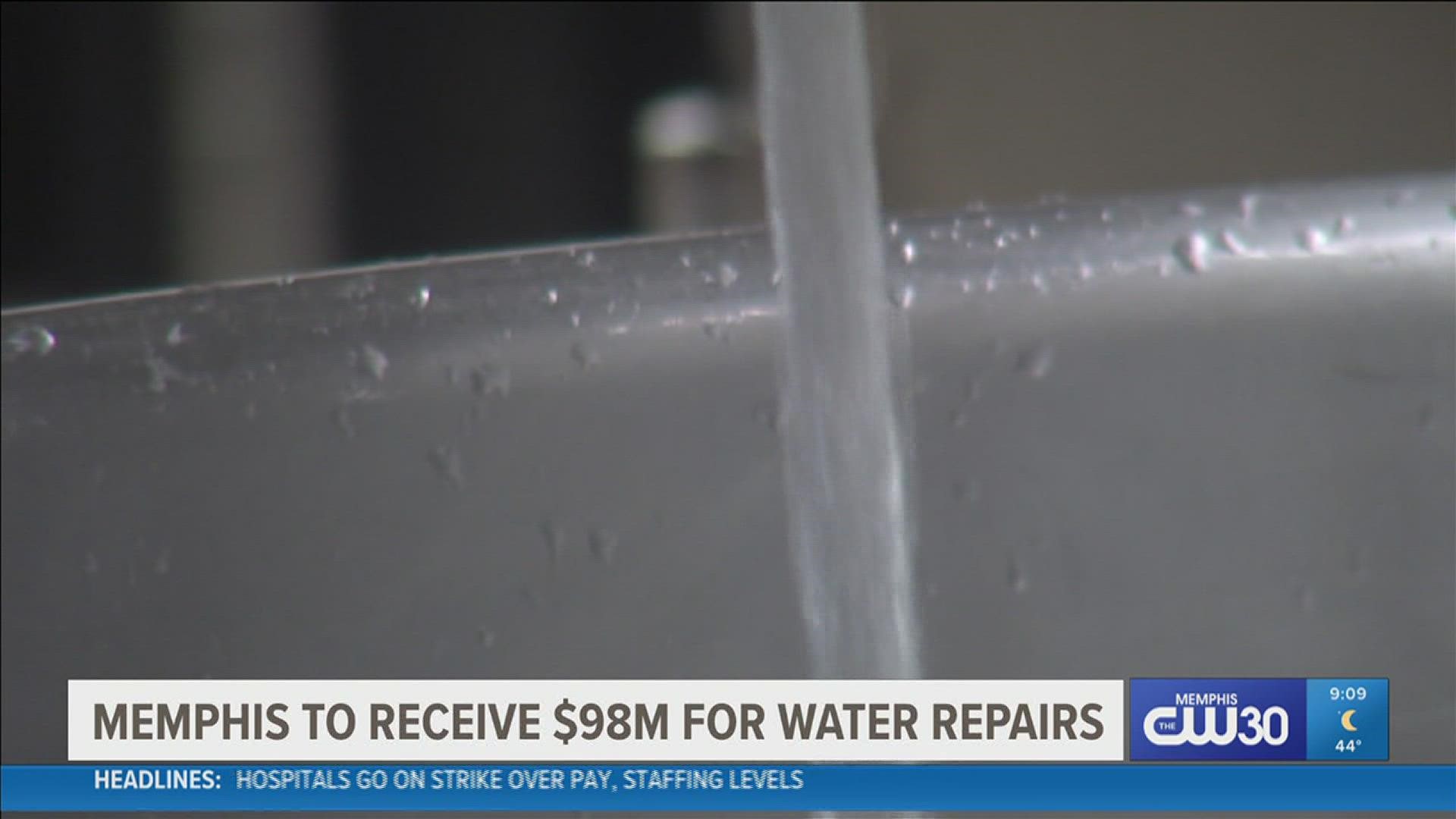MEMPHIS, Tenn. — The Tennessee Department of Environment and Conservation recently announced that more than $125 million will be given across 24 grants aimed at "addressing important water infrastructure needs" in Tennessee.
Memphis could receive around $98 million once approved for a grant. TDEC’s Jennifer Tribble said they encouraged all 95 counties to apply for water infrastructure investments, and that each one did apply.
The first round of grants were only non-competitive grants.
“Under our non-competitive grant, every city or county knew how much money they were eligible for that was published in our investment plan as well as in our non-competitive grant manual,” Tribble said. “They know how to structure their application to fit the funding allocation that they were eligible for.”
The City of Memphis’ Director of Public Works Robert Knecht said the money will be going to sewer infrastructure, water infrastructure for MLGW, an Aquaphor study for our drinking water and lead-line replacements.
Sewer infrastructure is expected to use a majority of the money from grants.
“We have two billion dollars in sewer infrastructure needs, so we’re looking for any and all allocations of funding to help address that," Knecht said. "Sewer is probably the most underrated and undervalued utility because we do such a good job of managing it. Most people don’t even think about it.”
He said the city has already received money from other areas particularly for storm drains, so it wasn’t a priority when drains weren’t a priority when it came to this non-competitive grant. Phase two of grants from TDEC will be laid out after each county is approved for their phase one funding, but that round will be on a competitive basis.
While every county did not feel the need to use funding directly, especially those outsourcing their water infrastructure, every single county did apply for fundraising either for their own county or to allocate to neighboring counties.
“We did allow counties to transfer their funding allocations either to cities within their own county that were receiving an allocation themselves or to nearby cities that maybe share a customer base within that county,” Tribble said.
The money spreading all across Tennessee is just a small portion of TDEC looking to other states for how to better fund the infrastructure impact individual counties the most.
“We’ve been monitoring what other state are doing with their American Rescue Plan funding and a number of states are using that money to invest in water and sewage infrastructure,” Tribble said. We all know that clean water is a necessity for life, and, again, the problems we are facing in Tennessee are not unique to our state. They’re occurring all over the country.”
While TDEC has not yet released a timeline for phase two applications, they did say the competitive grant will be more traditional and require applicants to show their need for high priority infrastructure improvements.

